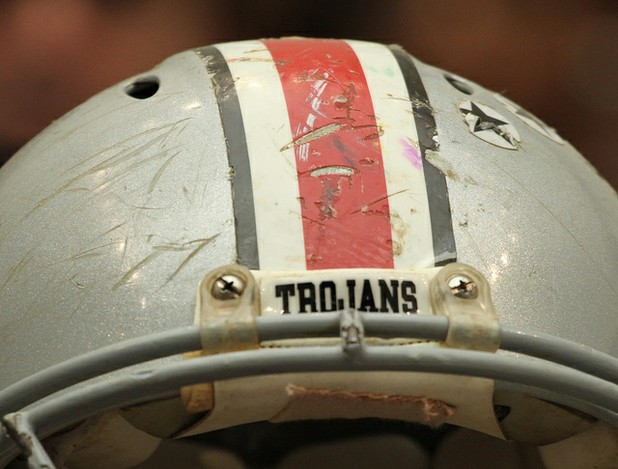The Link between Traumatic Brain Injuries (TBI) and Depression
Wondering what’s causing your depression? Have any concussions or other forms of brain injury in your past? Well, if you do it might explain the way you’re feeling, because having a brain injury, even a minor one, greatly increases your risks of depression – even years after the fact.
Feeling depressed and not sure what’s causing it?
Well, if you have a concussion or other form of traumatic brain injury in your past, even from many years ago, the legacy of that injury to your brain could be responsible for the symptoms of depression you feel today.
Traumatic Brain Injury
Traumatic brain injury (TBI) occurs when you get hit, bumped, jolted or pierced severely enough to cause some temporary or permanent change to brain functioning.
- TBIs can range in severity from mild to severe and can be fatal
- Mild TBIs cause a momentary loss of consciousness or a temporary change in mental functioning, such as feelings of wooziness, seeing stars, headaches, short term memory loss or feeling confused. About 75% of TBIs are concussions or other forms of mild brain injury. People rarely seek medical care for a mild TBI.
- More serious TBIs may involve longer periods of unconsciousness or coma and or more severe amnesia
Other TBI facts:
- Symptoms of TBI may occur right away or they may not emerge until days or even weeks following the injury. Some common TBI symptoms include headaches, difficulties with memory or clear thinking, mood changes, a ringing in the ears, changes to sleeping habits and feelings of fatigue. These symptoms can persist for a long while and TBI can cause depression or anxiety, even years after the fact.
- Traffic accidents cause about half of all TBIs. Other common causes include getting hit in the head with a hard object, banging your head on the ground or against another hard object or being in close proximity to an explosion (a frequent cause of military TBIs)
How Frequently Are TBIs Linked to Depression?
Experiencing a TBI greatly increases your odds of also experiencing mild or major depression.
Consider the following facts:
- About 1.7 million Americans have a TBI each year
- According to the US Dept. of Health, about 1 in 10 people without TBI will experience depression at some point. For people with TBI, that number climbs to 3 in 10
- Other experts put the incidence rate even higher. Researchers at the University of Washington suggest that about half of all people with TBI experience depression within the first year after injury, and about 2 in 3 experience depression by 7 years after brain injury.
Does Experiencing More Than One TBI Increase the Risks of Depression?
Yes, this is likely so - Studies on concussions (a mild form of TBI) show that having one concussion increases your susceptibility to future concussions and that the more concussions you have, the greater your risk of experiencing depression.
A study on ex NFL players showed that players who had sustained 3 or 4 concussions had twice the risk of experiencing depression as players who never sustained a concussion – and players who had sustained 5 or more concussions had 3 times the depression risk as those who had never sustained a concussion.
Why Does TBI Cause Depression?
Researchers do not yet completely understand how TBI causes depression. Some of the physiological reasons why TBI may cause depression include:
- Direct traumatic injury to areas of the brain that regulate emotion
- Brain trauma causes changes to cellular processes in the brain and these changes result in secondary brain cell death. Some of the change that may occur include: the formation of free radicals, changes to calcium and magnesium regulation, an increase in excitatory amino acids and changes to mitochondrial actions.
- TBI causes lasting disruption in the levels of certain neurotransmitters, specifically dopamine, noradrenalin and serotonin
TBI may also cause temporary or permanent disability, an inability to perform at previous levels and changes to roles within the family or on the job. These lifestyle changes can cause emotions and behaviors that increase the likelihood of depression.
References:
- Medline: Traumatic Brain Injury
- CDC: Traumatic Brain Injury
- Agency for Healthcare Research: Depressions after Brain Injury
- University of Washington: Depression after Brain Injury
- Harvard Medical School: Recurrent Concussion Linked to Depression
- Depression and Cognitive Complaints Following Mild Traumatic Brain Injury


